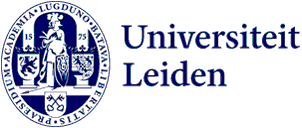Introducing: Joshua Mentanko
Since 1 September 2022, Josh Mentanko is postdoctoral researcher at the Institute for History. Below he introduces himself.
I’m delighted to join the Institute for History as a postdoc in the framework of “Global Questions, Local Sources.”
I’m originally from Canada, and I was born in a place which is about as “local” as you can get: Yorkton, Saskatchewan. I grew up in the slightly more cosmopolitan setting of Saskatoon, known (tongue firmly in cheek) as the “Paris of the Prairies” for its many bridges. Saskatchewan has cold winters and hot summers. It is always windy (kind of like here).

I began my BA in History and French at McGill University in Montreal in 2008, after spending two years at the University of Saskatchewan. Immediately, though, I took a year off and moved to Mexico where I volunteered on organic farms in various parts of the country. I realized that as much as I liked being outdoors, I was a rather inefficient farmer. When I returned to finish my BA, I thought I would do something useful and indoors with my life. I had always been told I should be a lawyer because I seemed to like debate. So, after finishing my BA, I went to law school, also at McGill. But I only lasted a year before I went back to Mexico where I somehow got the idea to do a PhD.
I spent three years as a PhD student at Yale University and three years as a Visiting Doctoral Student at the National Autonomous University of Mexico, where I completed my research and participated in academic life, funded by the Social Science and Humanities Research Council of Canada. My interest in violence and agrarian politics morphed into a history of traditional medicine in the twentieth century. Through this story, I discussed the growing role of the state, international institutions, and non-governmental organizations in regulating culture and health in the late twentieth century.
My dissertation focused on medical “acculturation” programs in the southern state of Chiapas, connected local developments to global health and development politics. I followed how the Mexican state used its credentials as a member of the “Third World” in the 1960s and 1970s to legitimize domestic policies of neoliberal multiculturalism in the 1980s. The dissertation drew on individual papers, fieldwork diaries, rural clinic statistics, and correspondence in archives from Geneva to San Cristobal de las Casas. I am now polishing the manuscript of my first book, tentatively titled “Making Medicine Indigenous: Uncovering the Origins of Intercultural Medicine in Modern Mexico.” Title suggestions actively encouraged!
I’m thrilled to get the chance to pursue my next research project on the history of knowledge and decolonization at Leiden’s Institute of History. My dissertation opened my eyes to the role of applied knowledges, especially applied anthropology, to policies and practices of development and modernization. While its colonial history is well known, anthropology’s ongoing influence during a period of decolonization, as well as its adoption and innovation outside of Europe, is less well understood. In this next project, I will explore the impact of Mexican anthropologists and theories in projects for development and national integration in the late French empire in North Africa. Given the framework of the postdoc, I am excited to connect at least two local “field sites” in Mexico and North Africa as part of this global story.
Drop me a line if you’re interested in chatting about history or Mexican food, or if you have any advice about biking in the winter!
